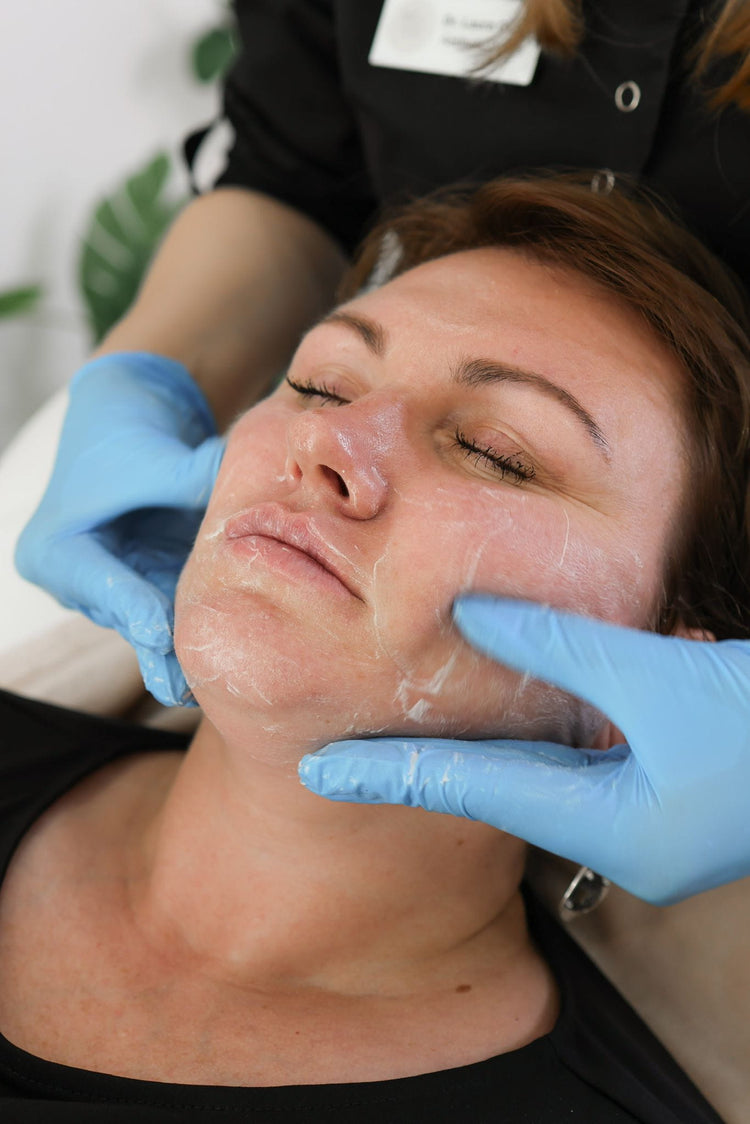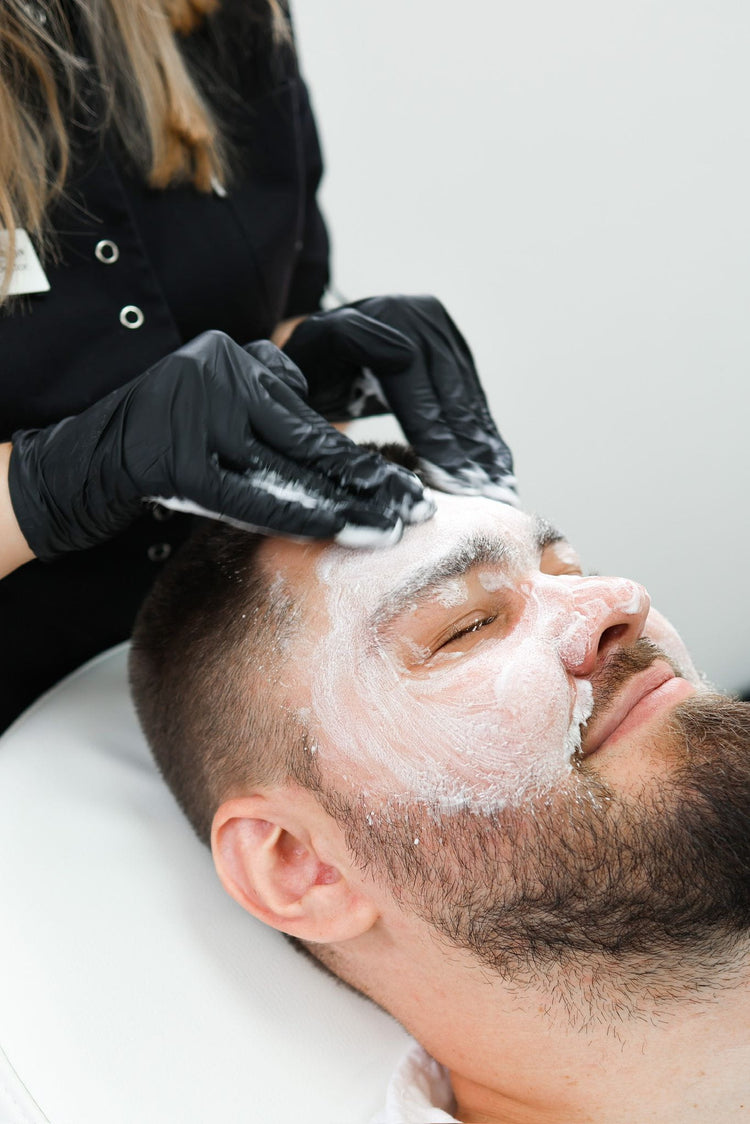Understanding Skin Dryness
Skin dryness, a common concern for many, can leave your complexion feeling tight, rough, and irritated. Understanding the causes and contributing factors behind this discomfort is essential in finding effective solutions.
Causes of Skin Dryness
Dry skin occurs when your skin lacks sufficient moisture, leading to a range of unpleasant symptoms. This imbalance can stem from various factors, both internal and external.
Internal factors include genetics, hormonal changes during pregnancy or menopause, and certain medical conditions like eczema or hypothyroidism. External factors such as harsh weather conditions, frequent hot showers, use of harsh soaps or detergents, and excessive sun exposure can also strip the skin of its natural oils.
Identifying the underlying cause of your dry skin is crucial for addressing it effectively.

Identifying Different Types of Dry Skin
To combat dryness, it’s important to understand the different types you might be experiencing. While all dry skin lacks moisture, there are variations in its presentation and severity.
One common type is xerosis, characterized by flaky, rough patches often found on the legs, arms, and torso. Another type is atopic dermatitis, which presents with itchy, inflamed skin and can involve weeping sores. There’s also dehydrated skin, which feels tight and appears dull due to a lack of water content.
Recognizing your specific type of dry skin allows you to tailor your skincare routine and seek appropriate treatments.
The Role of a Skin Treatment Consultation
A skin treatment consultation plays a vital role in combating skin dryness by providing personalized insights and guidance.
Assessment and Diagnosis

During a consultation, a trained esthetician or dermatologist will thoroughly assess your skin condition, taking into account your medical history, lifestyle habits, and current skincare routine. They will examine the texture, color, and any visible signs of dryness on your skin. This comprehensive evaluation helps to pinpoint the underlying cause of your dryness.
Based on their assessment, they can then recommend a tailored treatment plan that addresses your specific needs. This might include customized skincare products, such as moisturizers containing hydrating ingredients like hyaluronic acid or ceramides, exfoliating treatments to remove dead skin cells, and professional facials designed to replenish moisture.
In some cases, the consultation may reveal underlying medical conditions contributing to dryness, requiring referral to a dermatologist for further investigation and treatment.
A consultation provides valuable knowledge about your skin type and offers guidance on how to maintain its health in the long term. It empowers you to make informed decisions about your skincare routine and achieve lasting results.
Personalized Treatment Recommendations
A skin treatment consultation is a crucial step in combating dryness as it allows for a personalized approach to addressing this common concern. During a consultation, an expert will thoroughly assess your skin’s condition, considering factors like your medical history, lifestyle habits, and current skincare routine.
This in-depth analysis helps pinpoint the specific cause of your dry skin, whether it’s due to environmental factors, internal conditions, or improper skincare practices.
Armed with this knowledge, they can recommend tailored treatment recommendations that are most effective for your unique situation.
These recommendations might include specific moisturizers containing hydrating ingredients, exfoliating treatments to remove dead skin cells, or professional facials designed to replenish moisture.
The consultation also provides an opportunity to learn about different types of dry skin and how to best care for them. By understanding your skin type and the factors contributing to dryness, you can make informed decisions about your skincare routine and achieve long-lasting results.
Benefits of Professional Guidance
Combatting skin dryness requires a personalized approach that takes into account individual needs and underlying causes.
A skin treatment consultation provides valuable insights and guidance in this process.
Effective Moisture Restoration
A skin treatment consultation offers several benefits when combating skin dryness. Firstly, it allows for a thorough assessment of your skin’s condition, identifying the specific cause of the dryness.
This could range from environmental factors like weather conditions to internal imbalances caused by medical conditions or hormonal changes.
Based on this assessment, a customized treatment plan can be formulated, addressing the root cause rather than merely treating the symptoms.
The consultation also provides education about different types of dry skin and their specific needs.
You’ll gain valuable knowledge about ingredients to look for in skincare products, appropriate exfoliation techniques, and lifestyle changes that can improve skin hydration.
Furthermore, a professional can recommend suitable moisturizers, serums, or treatments tailored to your skin type and concerns, helping you achieve optimal moisture balance and healthier-looking skin.
Addressing Underlying Causes
A skin treatment consultation offers several benefits when combating skin dryness. Firstly, it allows for a thorough assessment of your skin’s condition, identifying the specific cause of the dryness.
This could range from environmental factors like weather conditions to internal imbalances caused by medical conditions or hormonal changes.
Based on this assessment, a customized treatment plan can be formulated, addressing the root cause rather than merely treating the symptoms.
- A trained esthetician or dermatologist will carefully examine your skin and inquire about your medical history, lifestyle habits, and skincare routine to pinpoint the exact cause of your dryness.
- They can then recommend a tailored treatment plan that might include customized skincare products, exfoliating treatments, professional facials, or even referrals to specialists if underlying medical conditions are suspected.
- The consultation also provides education about different types of dry skin and their specific needs. You’ll gain valuable knowledge about ingredients to look for in skincare products, appropriate exfoliation techniques, and lifestyle changes that can improve skin hydration.
Preventing Future Dryness
A professional skin treatment consultation offers several key benefits when combating dryness.
Firstly, a trained esthetician or dermatologist will thoroughly assess your skin’s condition, taking into account your medical history, lifestyle habits, and current skincare routine. This comprehensive evaluation helps pinpoint the specific cause of your dryness, whether it’s due to environmental factors, internal conditions, or improper skincare practices.
Based on this in-depth analysis, they can recommend tailored treatment recommendations that are most effective for your unique situation.
These recommendations might include specific moisturizers containing hydrating ingredients, exfoliating treatments to remove dead skin cells, or professional facials designed to replenish moisture.
Beyond immediate solutions, a consultation empowers you with knowledge about your skin type and the factors contributing to dryness. This understanding helps you make informed decisions about your skincare routine and achieve long-lasting results.
By learning about different types of dry skin and appropriate care techniques, you can proactively prevent future episodes of dryness and maintain healthier, more hydrated skin over time.
Treatment Options Offered During Consultations
During a consultation, a trained esthetician or dermatologist will thoroughly assess your skin condition, taking into account your medical history, lifestyle habits, and current skincare routine. They will examine the texture, color, and any visible signs of dryness on your skin to pinpoint the underlying cause.
Based on their assessment, they can then recommend a tailored treatment plan that addresses your specific needs. This may include customized skincare products, exfoliating treatments, professional facials, or referrals to specialists if necessary.
Moisturizers and Serums
A skin treatment consultation plays a vital role in combating skin dryness by providing personalized insights and guidance.
- During a consultation, a trained esthetician or dermatologist will thoroughly assess your skin condition, taking into account your medical history, lifestyle habits, and current skincare routine. They will examine the texture, color, and any visible signs of dryness on your skin to pinpoint the underlying cause.
- Based on their assessment, they can then recommend a tailored treatment plan that addresses your specific needs. This may include customized skincare products, exfoliating treatments, professional facials, or referrals to specialists if necessary.
Treatment options offered during consultations can vary depending on the individual’s skin type and the severity of their dryness.
Moisturizers and serums are often key components of a treatment plan for combating dry skin.
- Moisturizers help replenish lost moisture and create a protective barrier on the skin’s surface, preventing further water loss. Ingredients to look for in moisturizers include hyaluronic acid, ceramides, glycerin, and oils like jojoba or argan oil.
- Serums offer concentrated doses of active ingredients that target specific concerns, such as dryness. Look for serums containing hydrating agents like hyaluronic acid, niacinamide, or antioxidants like vitamin C to protect the skin from environmental damage.
Exfoliation Techniques
Treatment options offered during consultations can vary depending on the individual’s skin type and the severity of their dryness.
Moisturizers and serums are often key components of a treatment plan for combating dry skin. Moisturizers help replenish lost moisture and create a protective barrier on the skin’s surface, preventing further water loss. Ingredients to look for in moisturizers include hyaluronic acid, ceramides, glycerin, and oils like jojoba or argan oil.
Serums offer concentrated doses of active ingredients that target specific concerns, such as dryness. Look for serums containing hydrating agents like hyaluronic acid, niacinamide, or antioxidants like vitamin C to protect the skin from environmental damage.
Exfoliation plays a crucial role in addressing dry skin by removing dead skin cells that can hinder moisturizers and serums from penetrating effectively.
- Physical exfoliants use gentle scrub particles to buff away dead skin cells, while chemical exfoliants employ acids like alpha-hydroxy acids (AHAs) or beta-hydroxy acids (BHAs) to dissolve the bonds holding these cells together.
- Choosing the right exfoliation technique depends on your skin type and sensitivity. If you have sensitive skin, gentle enzymatic exfoliants may be more suitable, while those with thicker skin can tolerate stronger scrubs or chemical exfoliants.
Lifestyle and Environmental Adjustments
Treatment options offered during consultations can vary depending on the individual’s skin type and the severity of their dryness. Moisturizers and serums are often key components of a treatment plan for combating dry skin.
Moisturizers help replenish lost moisture and create a protective barrier on the skin’s surface, preventing further water loss. Ingredients to look for in moisturizers include hyaluronic acid, ceramides, glycerin, and oils like jojoba or argan oil.
Serums offer concentrated doses of active ingredients that target specific concerns, such as dryness. Look for serums containing hydrating agents like hyaluronic acid, niacinamide, or antioxidants like vitamin C to protect the skin from environmental damage.
In addition to topical treatments, lifestyle and environmental adjustments can significantly contribute to combating skin dryness.
- Staying hydrated by drinking plenty of water throughout the day helps your skin retain moisture from the inside out.
- Avoid excessively hot showers or baths as they can strip the skin of its natural oils. Opt for lukewarm water and limit shower time to a few minutes.
- Use gentle, fragrance-free cleansers that don’t irritate the skin. Avoid harsh soaps or detergents that can further dry out your complexion.
- Protect your skin from the sun’s harmful UV rays by wearing sunscreen with an SPF of 30 or higher daily, even on cloudy days.
- Consider using a humidifier, especially during dry seasons or in environments with low humidity, to add moisture to the air and prevent your skin from becoming parched.
Long-Term Skin Health Management
Long-term skin health management is essential for maintaining a healthy and vibrant complexion. When it comes to combating skin dryness, understanding its causes and implementing effective solutions is crucial.
Maintenance Regimens
Long-term skin health management involves adopting consistent skincare practices and lifestyle adjustments that promote hydration and protect the skin barrier.
This includes cleansing gently twice daily with a mild cleanser, moisturizing regularly with products containing hydrating ingredients like hyaluronic acid or ceramides, and protecting the skin from sun damage with sunscreen.
Exfoliating 1-2 times per week can help remove dead skin cells and improve product absorption.
Staying hydrated by drinking plenty of water is also crucial for maintaining skin moisture levels.
Furthermore, managing stress through activities like yoga or meditation can help reduce skin inflammation caused by cortisol release.
Addressing any underlying medical conditions that may contribute to dryness, such as thyroid disorders or eczema, is essential for achieving long-term improvement.
Remember, consistency is key when it comes to skin health management.
By incorporating these practices into your routine and seeking professional guidance when needed, you can combat dry skin and maintain a healthy, radiant complexion for years to come.
Follow-up Consultations for Continued Support
Skin treatment consultations are essential for combating dryness because they provide personalized insights and guidance. During a consultation, a trained esthetician or dermatologist will assess your skin condition, considering factors like your medical history, lifestyle habits, and current skincare routine. They will examine your skin’s texture, color, and any visible signs of dryness to pinpoint the underlying cause. Based on their assessment, they can recommend tailored treatment options, including customized skincare products, exfoliating treatments, professional facials, or referrals to specialists if necessary.
Follow-up consultations are crucial for monitoring progress and making adjustments to your treatment plan as needed. They allow you to discuss any concerns or changes in your skin’s condition with your esthetician or dermatologist, ensuring you receive ongoing support and guidance on your path to achieving and maintaining healthy, hydrated skin.
Enquire about wrinkle-reducing treatments at It’s Me & You Clinic with Dr. Laura Geige
- Why Does Lip Filler Migration Happen - November 4, 2025
- What Is The Best Time Of Year To Get Bum Filler Injections? - November 3, 2025
- What Are The Best CBD Gummies For Sleep And Pain Relief - November 1, 2025
